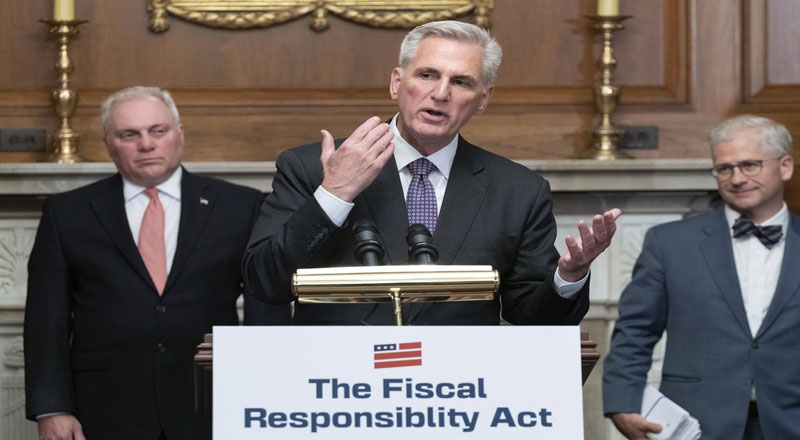U.S. House of Representatives passed a bill to suspend the debt ceiling, with majority support from both Democrats and Republicans to overcome opposition led by conservatives and avoid a catastrophic default.
The Republican-controlled House voted 314-117 to send the legislation to the Senate, which must enact the measure and get it to President Joe Biden‘s desk before the deadline when the federal government is expected to run out of money to pay its bills.
After the vote, Biden expressed his satisfaction. “This agreement is good news for the American people and the American economy,” Biden said. “I urge the Senate to pass it as quickly as possible so that I can sign it into law.”
The measure, a compromise between Biden and House Speaker Kevin McCarthy, drew opposition from 71 Republicans. That would normally be enough to block partisan legislation, but 165 Democrats, more than the 149 Republicans who voted for it – backed the measure and pushed it through. Republicans control the House by a narrow 222-213 majority.
Hardline Republicans had wanted deeper spending cuts and more stringent reforms. Progressive Democrats, who along with Biden had resisted negotiating over the debt ceiling, oppose the bill for a few reasons, including new work requirements from some federal anti-poverty programs.
The non-partisan Congressional Budget Office said the legislation would result in $1.5 trillion in savings over a decade. That is below the $4.8 trillion in savings that Republicans aimed for in a bill they passed through the House in April, and also below the $3 trillion in deficit that Biden’s proposed budget would have reduced over that time through new taxes.
In the Senate, leaders of both parties said they hoped to move to enact the legislation before the weekend. But a potential delay over amendment votes could complicate matters. Republicans said Senate Majority Leader Chuck Schumer and Senate Minority Leader Mitch McConnell could need to allow votes on Republican amendments to ensure quick action.
Senate debate and voting could stretch into the weekend, especially if any one of the 100 senators tries to slow passage. Senator Bernie Sanders, a progressive independent who caucuses with the Democrats, said he would oppose the bill due to the inclusion of an energy pipeline and extra work requirements.
In a win for Republicans, the bill would shift some funding away from the Internal Revenue Service, although the White House says that should not undercut tax enforcement.
Biden can point to gains as well. The deal leaves his signature infrastructure and green-energy laws largely intact, and the spending cuts and work requirements are far less than Republicans had sought.
Republicans have argued that steep spending cuts are necessary to curb the growth of the national debt, which at $31.4 trillion is roughly equal to the annual output of the economy.
The debt-ceiling standoff prompted rating agencies to warn that they might downgrade U.S. debt, which underpins the global financial system. Credit rating agency DBRS Morningstar put the United States on review for a possible downgrade last week, echoing similar warnings by Fitch, Moody’s, and Scope Ratings. Another agency, S&P Global, downgraded U.S. debt following a similar debt-ceiling standoff in 2011 during a similar partisan divide with a Democratic president and Senate majority and a Republican-majority House.
(With inputs from agencies)





